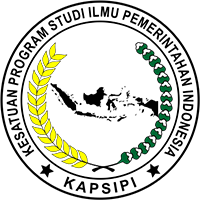Indonesian Government Policies in Handling Cases of Commercial Sexual Exploitation of Children in Indonesia
DOI:
https://doi.org/10.35967/njip.v20i2.202Keywords:
Government Policy, ECPAT, Commercial Sexual Exploitation of ChildrenAbstract
This research is motivated by the fact that the development of an increasingly modern world and the ease of transportation around the world make CSEC cases more complex. The high number of CSEC cases in Indonesia encourages the Indonesian government to focus more on developing policies and programs related to child sexual exploitation. To maximize its policies, the Indonesian government cooperates with various related parties, both government and non-government institutions, one of which is ECPAT. ECPAT is an international organization whose goal is to eliminate all forms of sexual exploitation of children. This study aims to find out the cooperation of Indonesia government policy with ECPAT in handling cases of CSEC in Indonesia. This study uses the theory of the role of International Organizations and qualitative research methods with library research techniques, namely utilizing secondary data obtained through literature studies obtained from various literatures such as books, journals, bulletins, newspapers, annual reports of several related agencies, documents, or other materials that support research. In implementing their policies, the Indonesian government and ECPAT cooperate with other parties involved in the implementation of the fight against child sexual exploitation, such as community organizations, the private sector, academics, and international agencies. The policies and programs that have been carried out by the Indonesian government with ECPAT in Indonesia are conducting research or collecting data related to child exploitation, advocating for related parties, training with related institutions to be better prepared to deal with child sexual exploitation problems, and socialization such as campaigns, workshops, or online education. Through the actions that have been taken, several achievements have been made, such as conducting research to record CSEC cases in Indonesia, such as creating a module containing ways to prevent CSEC, guiding and inviting the private sector to cooperate and be willing to pay attention to the protection of children's rights, and actively provide education and campaigns both on social media and in person.
Downloads
References
Affan, H. (2018). Kasus kejahatan seksual anak’ ditemukan di 10 lokasi wisata di Indonesia. Www.Bbc.Com.
Asnofi, H. (2007). KEBIJAKAN PEMERINTAH INDONESIA DALAM MENGATASI EKSPLOITASI SEKSUAL KOMERSIAL ANAK (Studi Kasus?: Eksploitasi Seksual Komersial Anak (ESKA) Indonesia di Singapura Tahun 2002-2007).
Bennet, A. L., & Oliver, J. K. (1995). International Organization: Principal and Issues. University of Delaware, Engloewood Cliff, U, New Jersey-Prentice.
ECPAT. (2015). ECPAT 25 Years: Rallying the World to End Child Sexual Exploitation. ECPAT International.
ECPAT. (2017). Catatan Akhir Tahun. Www.Ecpatindonesia.Org.Com.
ECPAT. (2021). Our History. Www.Ecpat.Com.
ECPAT, I. (2018a). “Cegah Eksploitasi Seksual Anak selama Asian Games 2018.” Www.Ecpatindonesia.Com.
ECPAT, I. (2018b). “Sosialisasi Pendidikan Pencegahan Tindak Pidana Perdagangan Orang (PTPPO) di Kota Cirebon.” Www.Ecpatindonesia.Com.
ECPAT, I. (2019). “Buruknya Perlindungan Anak dari Kejahatan Seksual Online”. Diakses melalui pada. Www.Ecpatindonesia.Com.
ECPAT, I. (2020). PELATIHAN PEMBENTUKAN DESA BEBAS DARI PORNOGRAFI ANAK. Www.Ecpatindonesia.Org.Com.
Fitri, M. (2016). PERANAN THE UNITED NATIONS CHILDREN’S FUND (UNICEF) DALAM PENANGANAN EKSPLOITASI SEKSUAL KOMERSIAL ANAK (ESKA) DI DUNIA. Applied Microbiology and Biotechnology, 85(1), 2071–2079.
Hadi, S. (2000). Metodologi Research I,. Andi Offset.
Hamrun, H., Harakan, A., Prianto, A. L., & Khaerah, N. (2020). Strategi Pemerintah Daerah Dalam Pengembangan Pelayanan Berbasis E-Government Di Kabupaten Muna. Nakhoda: Jurnal Ilmu Pemerintahan, 18(2), 64. https://doi.org/10.35967/jipn.v18i2.7808
Hidayat, R. (2015). Kajian Bentuk- Bentuk Eksploitasi Seks Komersial Anak Di Lingkungan Wisata Provinsi Sulawesi Utara. Sosiohumaniora, 17(3), 237. https://doi.org/10.24198/sosiohumaniora.v17i3.8342
International, E. (2011). “Pemantauan Global Status Aksi Menentang Eksploitasi Seksual Komerisal Anak.” Www.Ecpat.Com.
International, E. (2018a). “CATATAN TAHUN 2017: 404 ANAK MENJADI KORBAN ESKA.” Www.Ecpat.Com.
International, E. (2018b). “International Governance Documentation.” Www.Ecpat.Comww.
International, E. (2019). “Catatan Pemantauan Media ECPAT 2018.” Www.Ecpat.Com.
International, E. (2020). “ECPAT 30 Years Anniversary.” Www.Ecpat.Com.
Ismandianto, D. (2019). Model Komunikasi Pemerintahan Kota Tanjung Pinang. 21–34.
Kesuma Giri, H. A. (2017). Formulasi Kebijakan (Studi Kasus Peraturan Daerah Kabupaten Indragiri Hilir Nomor 07 Tahun 2012 Tentang Bisa Baca Dan Tulis Al-Qur’an Bagi Murid Sekolah Yang Beragama Islam). Jurnal Ilmu Pemerintahan Nakhoda, 16(27), 40–53. https://doi.org/10.35967/jipn.v16i27.5794
Mayasari, A. (2009). Peranan international labour organization (ILO) melalui program indus project dalam menangani masalah pekerja anak di India. Www.Unikom.Com.
Oktarina, N. (2019). Hubungan Modern Seksisme Dengan Sikap Terhadap Perdagangan seks Pada Remaja Perempuan Beresiko. Universitas Airlangga.
Perwita, A. A. B., & Yani, Y. M. (2005). Anak Agung Banyu dan Yanyan Mochamad Yani. Ilmu Hubungan Internasional. PT Remaja Rosdakarya.
Post, T. A. (2017). “Combating Child Sex Abuse – is ASEAN Doing Enough?” Www.Theaseanpost.Com.
Pramesthi, M. N., & Subekti. (2007). PERLINDUNGAN HUKUM TERHADAP ANAK KORBAN EKSPLOITASI SEKSUAL KOMERSIAL DI YAYASAN KAKAK SURAKARTA. RECIDIVE, 6(2), 15–38.
Rahman, K. (2017). Pelayanan Pemerintahan Yang Bertanggung Jawab. Jurnal Ilmu Pemerintahan Nakhoda, 16(28), 34–42. https://doi.org/10.35967/jipn.v16i28.5823
Rizky, A. R. (2015). Kontribusi ECPAT terhadap aktifitas Sex Tourism di Brazil tahun 2012-2014. Jom FISIP, 2(1), 1–10.
Sirait, A. M. (2008). Eksploitasi Seksual Komersial Mengintai Anak Kita. Jurnal Legislasi Indonesia, 5(3), 87–92.
Sofian, A. (2019). Implementasi Ratifikasi Optional (OPSC) di Indonesia. Www.Binus.Com.
Subarkah, A. R. (2018). Peran ECPAT dalam Menangani Child Sex Tourism di Indonesia (Studi Kasus: Bali). TRANSBORDERS: International Relations Journal, 2(1), 67. https://doi.org/10.23969/transborders.v2i1.1148
Sugiharti, S. (2017). PERAN INGO “SAVE THE CHILDREN” DALAM MENANGANI KASUS EKSPLOITASI SEKSUAL KOMERSIAL ANAK DI INDONESIA TAHUN 2010-2015. Universitas Muhammadiyah Yogyakarta.
Yasa, A., Suswanta, S., Rafi, M., Rahmanto, F., Setiawan, D., & Iqbal Fadhlurrohman, M. (2021). Penguatan Reformasi Birokrasi Menuju Era Society 5.0 di Indonesia. Nakhoda: Jurnal Ilmu Pemerintahan, 20(1), 27–42. https://doi.org/10.35967/njip.v20i1.139
Downloads
Published
How to Cite
Issue
Section
License
Copyright (c) 2021 Authos(s)

This work is licensed under a Creative Commons Attribution-NonCommercial-ShareAlike 4.0 International License.





